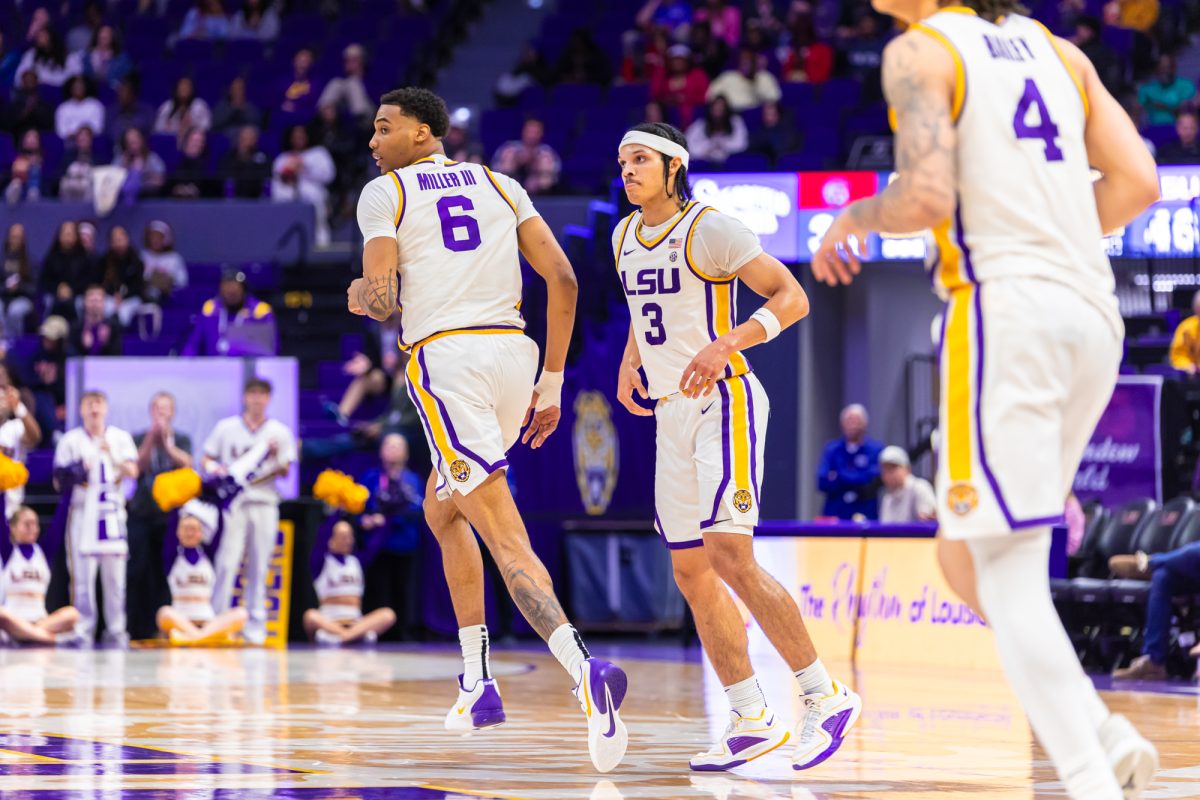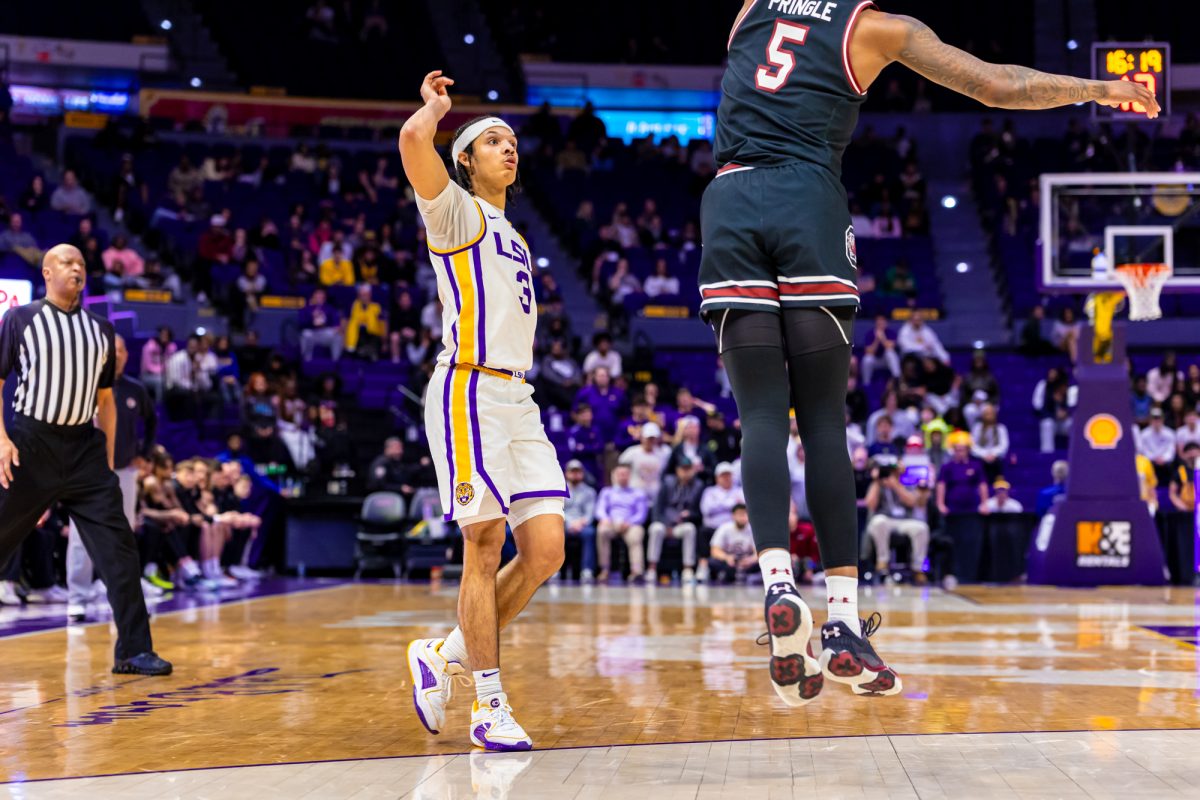Sometimes a loss defines a season more than win.
As oddly-quiet LSU fans filed out of Tiger Stadium after the top-ranked Tigers’ 50-48 triple-overtime loss to the University of Arkansas on Nov. 23, 2007, all national championship hopes seemed lost.
After all, national champions are only allowed one flaw, not two, even if both losses came in triple overtime against Southeastern Conference opponents.
“The loss just hurt because we had a lot going for us,” said then-freshman defensive tackle Drake Nevis. “We still had everything available for us. At the end of the game, we just couldn’t believe it. We just knew at one point somebody was going to make the play … At the end, losing was a shock.”
For the second time in 2007, the Tigers lost by less than seven points as the nation’s No. 1-ranked team in a back-and-forth conference affair.
But despite how the odds were against them, the Tigers pulled the ultimate “not so fast” in the words of ESPN college football analyst Lee Corso, clawing their way back into national title contention with a victory in the SEC Championship Game and a historic domino effect of losses across the country.
“It was a lot to play for,” Nevis said. “A lot of people don’t get the opportunity to play for the SEC championship. At that moment in time, the only thing that was important was winning that game. Once you focus on just one task, everything else is just out of your control.”
Heading into the 2007 edition of LSU-Arkansas, the Tigers expected a battle worthy of the “Golden Boot,” and the Razorbacks gave them all they could handle.
The high-powered LSU and Arkansas offenses exchanged scores, combining for 56 points through regulation alone.
Arkansas then-junior running back duo Darren McFadden and Felix Jones gashed the Tigers defense for 291 total yards on the ground and three touchdowns, while then-senior running back Jacob Hester tallied a career-high 126 yards on 28 carries in his usual workman style.
“I remember it being a back and forth game, ” Hester said. “A game with a lot of offense. Darren McFadden and Felix Jones for Arkansas and myself had some pretty good rushing days … It was one of those games where you know whoever made the first mistake would lose the game.”
Despite their highlight reel against the Razorbacks, Hester and company’s uncharacteristic mistakes loom larger than the individual statistical success.
In the fourth quarter, then-senior quarterback Matt Flynn connected with Hester for an easy 54-yard touchdown pass to put LSU ahead, 27-21. But an ineligible man downfield penalty cost the Tigers the score and the momentum.
“Once that happened, you could feel the momentum swing back to Arkansas,” Hester said.
In overtime, the Razorbacks and Tigers continued the slugfest until LSU’s mandatory two-point conversion attempt in the third overtime failed when Flynn was picked off in the end zone.
Looking back on the loss, veterans and rookies alike felt its devastation.
“It was sickening because … that game put us out of the national championship race,” said then-redshirt freshman defensive tackle Lazarius Levingston. “[Going forward], we have pride. We wear that purple and gold … We wanted to finish and go out with a bang. We just suited up and just continued.”
Just a week later, LSU bounced back with a 21-14 win against the then-No. 14 University of Tennessee in the SEC Championship Game.
During the plane ride back to Baton Rouge, the Tigers’ dreams became reality as the No. 1 University of Missouri and No. 2 West Virginia lost in the final weekend of the season, culminating in an LSU and the Ohio State University national championship game.
“When we found out that we were going, it was the craziest plane ride ever, “ Levingston said. “It was pure excitement. Everybody was jumping up and going crazy.”
Throwback: Tigers use loss against Arkansas to fuel BCS title run
November 12, 2015
More to Discover






